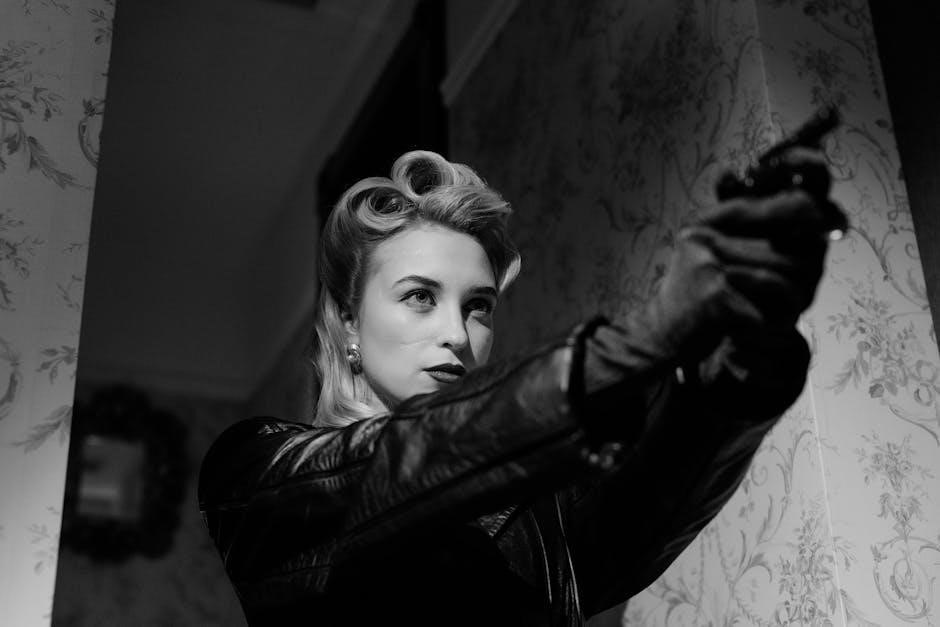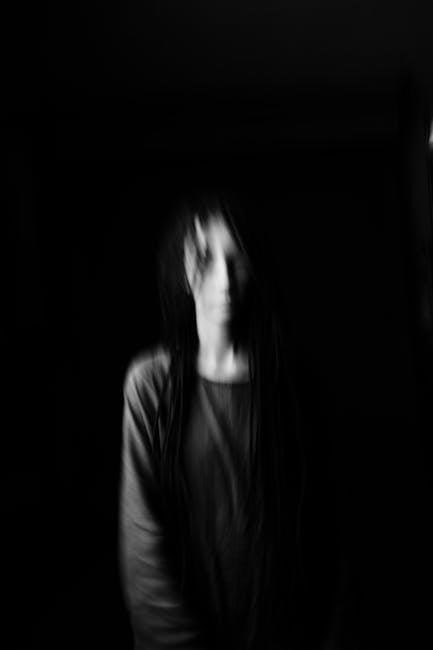The Phantom of the Opera score is a masterpiece by Andrew Lloyd Webber, blending operatic grandeur with musical theater. Its composition has become iconic, shaping modern theater history.
1.1 Historical Context and Significance
The Phantom of the Opera score, composed by Andrew Lloyd Webber, premiered in 1986 and is based on Gaston Leroux’s 1910 novel. It revolutionized musical theater by blending grand opera with contemporary storytelling. The score’s dramatic and passionate nature, featuring iconic pieces like “The Music of the Night,” has made it a cornerstone of modern theater. Its enduring success has solidified its place in Broadway and West End history, influencing countless adaptations and interpretations while remaining a timeless classic in musical theater.
1.2 Andrew Lloyd Webber’s Role in Creating the Score
Andrew Lloyd Webber is the mastermind behind the Phantom of the Opera score, blending grand opera with musical theater. His composition captures the story’s emotional depth, creating iconic pieces like “The Music of the Night” and “All I Ask of You”. Webber’s orchestration and melodies have redefined modern theater music, making the score a timeless classic. His work not only showcases technical brilliance but also emotional resonance, ensuring the score’s enduring legacy in musical theater history.

Structure and Composition of the Score
The Phantom of the Opera score masterfully blends operatic grandeur with musical theater, featuring intricate orchestration and emotional depth, creating a captivating auditory experience for audiences worldwide.
2.1 Key Musical Themes and Motifs
The Phantom of the Opera score features recurring themes, such as the haunting “Phantom’s Theme” and the romantic “All I Ask of You,” which underscore the story’s emotional depth. Motifs like the organ’s ominous tones symbolize the Phantom’s presence, while Christine’s arias convey her vulnerability and aspirations. These themes are masterfully interwoven, creating a rich, dramatic narrative that enhances the musical’s timeless appeal and emotional resonance. The score’s complexity and thematic consistency have solidified its place as a landmark in musical theater history.
2.2 Orchestration and Instrumental Arrangement
The Phantom of the Opera score is renowned for its lush orchestration, featuring a full orchestra with strings, brass, woodwinds, and percussion. The organ plays a central role, evoking the Phantom’s mysterious presence. Strings provide emotional depth, while brass and woodwinds add dramatic flourishes. The orchestration is carefully layered to support the narrative, with specific instruments highlighting key characters and scenes. This intricate arrangement enhances the musical’s operatic quality, creating a grand, immersive experience that underscores the story’s dramatic and emotional moments with precision and artistry.
Popular Songs from the Phantom of the Opera Score
The score features iconic songs like The Music of the Night and All I Ask of You, celebrated for their emotional depth and enduring appeal in musical theater.
3.1 “The Music of the Night” and Its Impact
“The Music of the Night” is one of the most recognizable and emotionally charged songs from Phantom of the Opera. It showcases the Phantom’s complexity, blending romance and melancholy. The song’s powerful orchestration, featuring grand piano and sweeping strings, underscores its dramatic intensity. Performed by the Phantom to seduce Christine, it highlights his artistic brilliance and inner turmoil. Its timeless appeal has made it a fan favorite, frequently performed and covered. The song’s impact lies in its ability to evoke deep emotion, solidifying its place as a hallmark of musical theater.
3.2 “All I Ask of You” and Other Notable Pieces
“All I Ask of You” is a poignant duet between Christine and Raoul, capturing their love and commitment. Its emotional depth resonates deeply with audiences, making it a standout piece in the musical. Other notable songs like “Think of Me”, “Angel of Music”, and “Masquerade” each play crucial roles in developing the story and characters, showcasing the Phantom’s obsession and the opulence of the opera house. These pieces, with their rich orchestration, have become iconic in musical theater history.

Finding and Downloading the Phantom of the Opera Score PDF
The Phantom of the Opera score PDF can be found through legitimate sources like the International Music Score Library Project (IMSLP) or the official Andrew Lloyd Webber website;
4.1 Legitimate Sources for the Full Score
To obtain the Phantom of the Opera score PDF legally, consider reputable sources like the International Music Score Library Project (IMSLP) or Andrew Lloyd Webber’s official website. These platforms offer authentic, high-quality scores, ensuring compliance with copyright laws. Additionally, authorized distributors like Musicnotes or Sheet Music Plus provide licensed digital copies. Purchasing from these sources supports the creators and guarantees access to the complete, unabridged orchestration, perfect for performers, conductors, or enthusiasts seeking an authentic representation of the iconic score.
4.2 Free Sheet Music and Piano Solos
For enthusiasts seeking free sheet music and piano solos from The Phantom of the Opera, various platforms offer arrangements of iconic pieces like “The Music of the Night” and “All I Ask of You.” Websites such as SheetMusicPlus, Musicnotes, and MuseScore provide downloadable piano solos, often transcribed for solo or duet performances. These arrangements are ideal for practice, personal enjoyment, or educational purposes. While free options are available, ensure compliance with copyright laws by verifying the licensing terms before downloading or using the materials.

Legal and Ethical Considerations
The Phantom of the Opera score is copyrighted by Andrew Lloyd Webber, with performance rights managed by The Really Useful Group. Licensing ensures ethical use and compliance;
5.1 Copyright and Licensing for Performance
The Phantom of the Opera score is protected under copyright by Andrew Lloyd Webber, with performance rights managed by The Really Useful Group. Proper licensing is essential for legal use, ensuring royalties are paid to the creators. Unauthorized performance or distribution violates copyright laws and can lead to legal consequences. Obtaining a legitimate score and securing performance rights through official channels is crucial for compliance. This ensures the artistic integrity and ethical use of the work, supporting the creators and the musical theater industry.
5.2 Perusal Copies and Fair Use
Perusal copies of the Phantom of the Opera score are available for review purposes, marked “Not for Performance.” These copies allow potential producers or educators to evaluate the work before purchasing. Fair use permits limited use of copyrighted material for education or criticism, but not for public performance; Using perusal copies for auditions or rehearsals without proper licensing may violate copyright. Always consult The Really Useful Group for licensing to ensure compliance with legal requirements and ethical standards when working with this iconic score.
Audition and Performance Materials
Audition materials for Phantom of the Opera include key scenes like the Managers’ Scene and iconic songs. Performance materials require licensed scores from The Really Useful Group.
6.1 Scenes and Selections for Auditions
Key audition scenes include Andre & Firmin’s Managers Scene and iconic vocal pieces like “Think of Me” and “The Music of the Night”. These selections highlight vocal range and dramatic depth. The score also features scenes like the Phantom’s Lair and Masquerade Ball, showcasing versatility. Audition materials must be obtained from licensed sources, as the score is copyrighted by Andrew Lloyd Webber and managed by The Really Useful Group. Using authorized scores ensures authenticity and legality for auditions.
6.2 Conducting the Score: Tips and Challenges
Conducting The Phantom of the Opera score requires a deep understanding of its dramatic context and musical complexity. Balancing grand orchestration with intimate vocal moments is crucial. Conductors must maintain precise pacing, especially in scenes like Masquerade and The Music of the Night. Attention to dynamics and phrasing is essential to evoke the score’s emotional depth. Rehearsals should focus on harmonizing vocal and instrumental elements, ensuring a cohesive performance. The conductor’s interpretation significantly impacts the audience’s connection to the story, making it both a privilege and a challenge.

Cultural and Artistic Impact
The Phantom of the Opera score has profoundly influenced modern musical theater, blending operatic grandeur with accessible melodies. Its emotional depth and dramatic orchestration have inspired countless adaptations and interpretations worldwide, solidifying its legacy as a cultural phenomenon. The score’s enduring popularity underscores its artistic significance, continuing to captivate audiences and inspire new generations of composers and performers. Its influence extends beyond theater, shaping music and storytelling across genres, making it a timeless masterpiece in the world of performing arts.
7.1 The Score’s Influence on Modern Musical Theater
The Phantom of the Opera score revolutionized modern musical theater by blending operatic grandeur with accessible storytelling. Its complex orchestration and thematic depth raised the bar for musical composition, inspiring countless adaptations and reinterpretations. The score’s emotional intensity and dramatic structure have influenced a generation of composers, popularizing the fusion of opera and musical theater. Its success challenged traditional boundaries, proving that grand, emotionally rich works could resonate with global audiences, leaving an indelible mark on the evolution of musical theater.
7.2 Adaptations and Interpretations Over the Years
The Phantom of the Opera score has inspired numerous adaptations, from orchestral arrangements to piano solos, showcasing its versatility. Artists have reinterpreted iconic songs like “The Music of the Night” and “All I Ask of You,” infusing them with fresh styles. The score has also been adapted for various international productions, maintaining its emotional resonance. Additionally, the 25th-anniversary concert and other tributes highlight its enduring appeal, proving its adaptability across cultures and mediums while preserving its original grandeur and dramatic essence.
